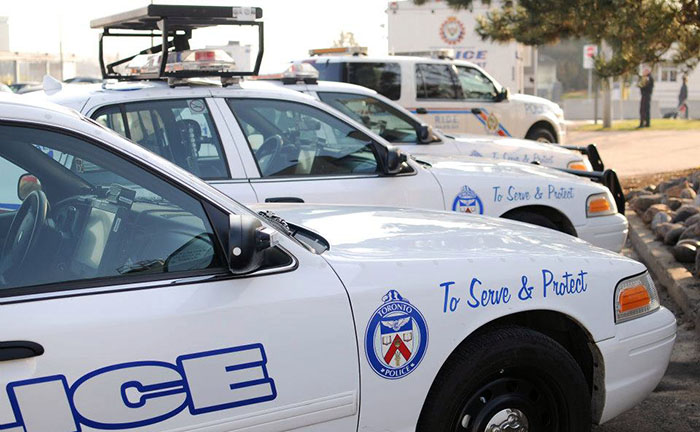Toronto police say despite launching several distracted-driving campaigns in the past year, numbers for the first quarter show an increase in reported incidents for 2017, so far.

The city’s latest quarterly traffic services recap documents a 37-per-cent increase in the number of tickets handed out to individuals using a hand-held type device while driving, compared to the first part of 2016.
Officers handed out 1,840 tickets to distracted drivers from January to the end of March, which is up from 1,345 compared to the first quarter of last year.
“When you are driving a motor vehicle, you essentially have control of a two- to three-thousand-pound missile” Const. Clint Stibbe from Toronto Traffic Services told AM 640. “If you don’t have control over that at all times, the devastation can be tremendous.”
Stibbe says it’s been a rough couple of years as numbers have been on the rise following a brief decline after the 2009 distracted-driving legislation was introduced.
“We had an annual low of around 12,000 tickets a couple of years ago, and even last year, it was at the 15,000 mark,” said Stibbe. “The recent numbers are disturbing in the sense that we’re on track for more in 2017, and it’s not due to any new legislation that drivers need to re-familiarize themselves with.”
Existing distracted-driving penalties can see a driver docked $490 and three demerit points, with novice drivers convicted of distracted driving being suspended for 30 days on a first offence and 60 days for a second offence. A third offence means the cancellation of their licences.
- Ontario hospital workers awarded 6% pay increase, new agreement on agency nurses
- S&P/TSX composite closes up nearly 100 points, U.S. stock markets mixed
- Pedestrian in life-threatening condition after being hit by vehicle in Mississauga
- Judge at trial of man accused of killing cop was concerned over Crown changing theory
The recap showed some good and bad news when it came to impaired driving incidents. The report showed that alcohol-impairment arrests declined 11 per cent, however, there was an 8-per-cent increase in drug-impaired arrests, year over year.
A drug screening pilot project, in partnership with Public Safety Canada, was a focal point in the latest report. The testing offered the use of two oral fluid drug-screening devices. Drivers screened out by drug-recognition experts with no risk of impairment charges, had the option of volunteering to take one of the tests.
One involved a subject having the cheek inside their mouth swabbed, while the other used a pad to wipe the inside of their tongue. When working properly, both devices are said to identify the use of six common drugs including cannabis, cocaine, methamphetamine and opioids.
“We did see about a 13-per-cent failure rate of the devices, however, out of 208 samples that were taken, nine individuals turned out a positive result,” said Stibbe.
Traffic services are documenting the use of the devices to help develop procedures and practices on potential future use of the devices at roadside stops. There are still some legal hurdles, as the Canadian Criminal Code does not allow for their usage in determining drug-related impairment arrests.
However, it’s expected that the Trudeau government will approve at least one of the tests for usage when it’s marijuana bill is tabled on Thursday.






Comments